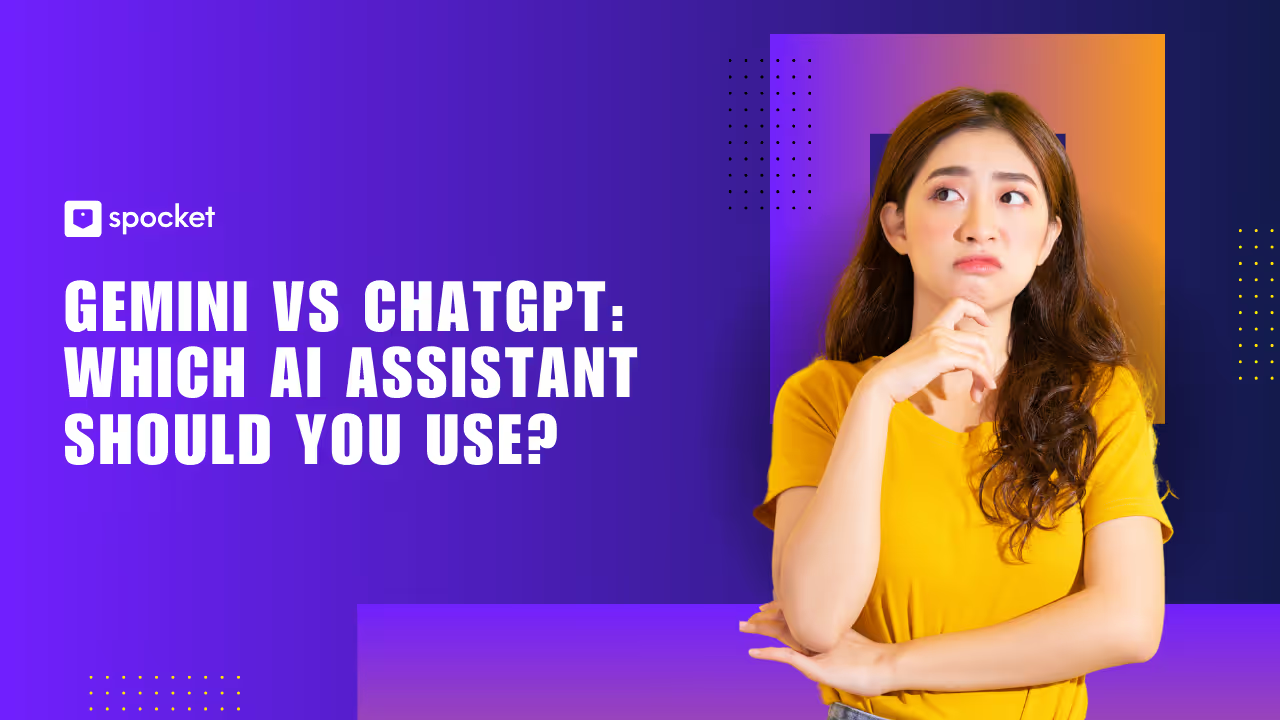Is Talkie AI Safe?
Wondering if Talkie AI is safe? Discover privacy risks, security measures, red flags, and tips to protect your data before you start chatting with AI.


Talkie AI has taken the internet by storm, letting people chat with lifelike AI characters that feel almost real. Whether it’s role-playing, storytelling, or just having a companion to talk to, talkie ai promises a unique experience. But with all the excitement comes an important question: Is Talkie AI really safe to use?
In a world where privacy risks lurk behind every new app, it's smart to pause and ask these questions. After all, you're not just sharing harmless jokes—you could be revealing personal thoughts, emotions, and even sensitive information without realizing it.
In this guide, we’ll break down everything you need to know about talkie ai safety. From privacy concerns to security measures and user experiences, we’ll dive deep so you can decide if it’s worth trusting—or if you should think twice before starting that next conversation.
What Is Talkie AI and Why Is It So Popular?

Before we dive into the safety concerns, it’s important to understand what talkie ai actually is and why so many people are flocking to it. This helps set the stage for why its growing popularity also raises important questions about trust, privacy, and user safety.
What Is Talkie AI?
Talkie AI is an interactive chat app that lets you create and talk to virtual characters powered by artificial intelligence. These aren’t just robotic responses—talkie ai characters can mimic emotions, develop personalities, and carry on dynamic conversations that feel surprisingly human.
Unlike many chatbot apps, talkie ai focuses heavily on creativity and emotional connection. Whether you want to talk to a fictional character, a historical figure, or even a fantasy creature, the platform gives you the tools to bring them to life and interact in a way that feels personal.
Why Has Talkie AI Become So Popular?
The rise of talkie ai isn’t just a trend—it taps into something deeper. People crave connection, creativity, and safe spaces to express themselves, especially online. Talkie AI fills that gap by offering a judgment-free zone where you can be yourself, explore new ideas, or just unwind with a friendly virtual companion.
Another big factor is the freedom it offers. Users can design characters, customize personalities, and even build ongoing storylines. Combine that with the app’s sleek design, ease of use, and a community that keeps growing daily, and it’s clear why talkie ai is quickly becoming a household name in AI chat platforms. For users looking to stay productive while exploring these AI interactions, tools like an AI note taker can be a perfect companion—automatically capturing key takeaways and organizing ideas from conversations for easy reference later.
How Safe Is Talkie AI for Your Data? (Privacy Deep Dive)
Now that you know why talkie ai is so popular, it’s time to look under the hood. With any app that collects and processes personal conversations, data privacy becomes a huge concern. Let’s unpack how talkie ai handles your information and what it really means for you.
What Data Does Talkie AI Collect?
Every time you interact with talkie ai, the app collects different types of data. This includes basic account information like your email address and username. But it can also log device details, IP addresses, usage patterns, and even the conversations you have with AI characters.
While some data collection is necessary for functionality, the line between improving user experience and invading privacy can get blurry. Knowing exactly what information you’re handing over is the first step in protecting yourself.
Does Talkie AI Sell Your Information to Third Parties?
According to talkie ai’s privacy policy, some non-personally identifiable information may be shared with third-party advertisers and partners. That means while your exact identity might stay hidden, your behavioral data—like how you interact with the app or what you talk about—could still be monetized.
This isn’t unusual in the app world, but it does raise questions. Even if it’s "anonymous," patterns in your behavior could potentially be traced back to you, especially if combined with other datasets.
Can You Delete Your Data from Talkie AI?
Talkie AI gives users the option to delete their accounts and request data removal. However, like most tech platforms, the process isn't always crystal clear. Some data, like anonymized interaction records or technical logs, might still remain on their servers even after account deletion.
If you’re serious about privacy, it’s important to follow through: submit a formal data deletion request, uninstall the app, and check your device for any lingering permissions or cached data.
Talkie AI Security: How Well Does It Protect Your Information?
Privacy and security go hand in hand. Even if an app promises privacy, weak security could still expose your data. So let's explore how well talkie ai actually defends your information from hackers, leaks, or accidental breaches.
Encryption Standards Used by Talkie AI
Talkie AI claims to use industry-standard encryption to secure user data. This typically means that when you send a message, it gets scrambled into unreadable code during transmission. However, it's important to know that not all encryption is created equal.
If an app only encrypts data during transit but not at rest (while stored), there’s still a risk. As of now, talkie ai hasn't publicly confirmed whether conversations are fully encrypted after being saved on their servers, leaving some gray areas when it comes to complete security.
Known Vulnerabilities or Leaks
At the time of writing, there haven’t been any major public reports of data breaches directly linked to talkie ai. That’s definitely a positive sign. However, absence of proof doesn’t guarantee total safety.
Many newer apps—especially those experiencing rapid growth—sometimes skip heavy security investments early on. It’s always smart to assume that any app, no matter how new or popular, could become a target if security protocols aren't regularly updated.
How Talkie AI Compares to Similar AI Apps in Security
Compared to older AI chat platforms like Replika or Character.AI, talkie ai still has room to grow in terms of transparency. While rivals often publish detailed security audits or independent assessments, talkie ai keeps most technical details under wraps.
If you’re deciding between platforms, it’s worth weighing not just the features but also how open they are about protecting your data. Transparency builds trust—and right now, talkie ai could do more to reassure its users.
Is Talkie AI Safe for Kids and Teens?
With so many young users curious about AI, it’s crucial to ask whether talkie ai is truly safe for children and teenagers. The line between fun and risky can get thin quickly, especially when real-time conversations are involved. Let’s break down what parents and guardians need to know.
Is Talkie AI Appropriate for Minors?
Talkie AI is rated for users aged 17+ on most app stores. However, it’s easy for younger users to bypass these restrictions. The app doesn’t have strict age verification processes, which means children could access characters and conversations that aren't designed for them.
Although many interactions on talkie ai are harmless, the platform’s focus on emotional bonding and creative storytelling opens the door to more mature or complex themes that may not be suitable for younger audiences.
Risks of Inappropriate Content Exposure
Since talkie ai allows users to create and customize characters freely, there’s always a chance of encountering inappropriate or suggestive conversations, even unintentionally. Unlike some educational AI apps built for kids, talkie ai doesn’t offer strong content filters by default.
Without careful monitoring, young users could end up exposed to adult themes, unhealthy role-play dynamics, or even develop emotional dependencies on AI characters that feel "too real."
Parental Controls and Monitoring Tips
Currently, talkie ai does not offer built-in parental controls like conversation filters or usage monitoring dashboards. This places more responsibility on parents to step in and supervise app usage.
If your child insists on using talkie ai, consider these steps:
- Regularly check their device activity.
- Set screen time limits through your phone’s parental controls.
- Discuss boundaries about what’s safe to share in conversations.
- Encourage them to talk openly about their experiences with the app.
Being proactive can help ensure that curiosity doesn’t lead to risky situations.
Real User Reviews: What People Are Saying About Talkie AI Safety
Understanding how users perceive Talkie AI's safety provides valuable insights beyond official statements. Let's delve into the community's experiences and concerns.
1. Positive Feedback: Engaging and Creative Interactions
Many users appreciate Talkie AI for its engaging conversations and creative possibilities. The ability to interact with diverse AI personas offers a unique form of entertainment and companionship. Some users find the platform helpful for practicing language skills or exploring imaginative scenarios.
For instance, a Reddit user shared their experience using Talkie AI to enhance their reality-shifting practices, stating that it helped them program their subconscious and further their desired reality relationships.
2. Negative Feedback: Privacy and Content Concerns
Despite its appeal, users have raised concerns about privacy and content moderation. Some users worry about the amount of personal data collected by the app, including sensitive information like birthdates and location data.
Additionally, there have been reports of the AI generating inappropriate or suggestive content, even when users did not prompt such interactions. This raises questions about the effectiveness of the app's content filters and its suitability for younger audiences.
3. Patterns in User Experiences
The feedback suggests a pattern: while Talkie AI offers innovative and engaging features, there are notable concerns regarding data privacy and content safety. Users appreciate the creative freedom but urge for more robust safeguards to protect personal information and ensure appropriate content generation.
Red Flags You Should Watch Out For Before Using Talkie AI
While Talkie AI offers an exciting experience, it’s smart to be aware of certain risks before diving in. Knowing these red flags can help you use the app more safely and decide if it’s really the right platform for you.
1. Data Ownership Issues
When you create conversations and characters on talkie ai, you might assume you "own" your content. However, based on most AI app policies, the platform often reserves the right to access, use, or even share that content under certain circumstances.
Always read the fine print. If you’re not comfortable with the idea that your creative chats could be stored or analyzed, it’s worth thinking twice before sharing too much.
2. Addiction Risk with AI Emotional Bonding
One of the things that makes talkie ai so captivating is its emotional depth. Characters can feel incredibly real. But this can sometimes lead to users forming emotional dependencies on AI, blurring the line between virtual and real relationships.
Spending hours bonding with an AI can affect your emotional health if you're not mindful. Setting healthy boundaries with usage is crucial, especially for teens.
3. Lack of Transparency in AI Content Generation
Talkie AI characters are programmed to feel spontaneous and lifelike, but their responses are still driven by algorithms you can’t fully see. This lack of transparency can be problematic if you're trying to gauge whether conversations are safe, accurate, or being influenced by hidden biases.
Without clear information on how content is generated or moderated, users are left trusting a system they don't fully understand.
4. Hidden Permissions During Sign-Up
Like many apps, talkie ai asks for certain permissions during sign-up. However, some permissions, like access to device storage or approximate location, might seem unnecessary for a simple chat app.
Always review app permissions manually. Only grant what’s absolutely needed for basic functionality to reduce exposure of your personal data.
Tips to Stay Safe While Using Talkie AI
Even if you love using Talkie AI, a few smart steps can make a big difference in protecting your privacy and staying secure. Let’s walk through easy, practical ways you can enjoy the app while keeping your personal information safe.
1. Create Anonymous Accounts
One of the easiest ways to protect yourself is by not using real personal details when creating your account. Choose a username that doesn’t reveal your identity and use a separate email address created just for apps like talkie ai.
This small move can shield you if there’s ever a data leak or security issue.
2. Limit Sensitive Conversations
As real as the AI characters might seem, it’s important to remember: they’re not human, and your conversations are being processed by a system. Avoid discussing sensitive topics like financial details, passwords, mental health diagnoses, or any personally identifiable information.
Keeping your conversations light and general minimizes risks in case your data is ever compromised.
3. Review Permissions Regularly
Don’t just accept all app permissions by default. After installing talkie ai, take a minute to manually review what the app can access—whether it’s your location, microphone, or files.
Deny any permissions that aren’t absolutely necessary. It’s an easy step to limit what data you're unknowingly sharing.
4. Use VPN and Secure Passwords
When logging into talkie ai or any online platform, use strong, unique passwords that are hard to guess. Also, consider using a VPN (Virtual Private Network) when accessing the app, especially on public Wi-Fi.
A VPN can hide your IP address and encrypt your internet connection, giving you another layer of protection against data tracking and hacking.
Alternatives to Talkie AI That Offer Better Safety
If you like the idea of chatting with AI but feel unsure about talkie ai's safety, you’re not alone. Luckily, there are other AI chat apps that put more emphasis on privacy, transparency, and user control. Here are some options you might want to consider.
1. Character.AI: Privacy-First Conversations
Character.AI is a strong alternative for those worried about data privacy. It allows users to create and interact with fictional AI characters, much like talkie ai, but with stricter data-use policies.
The platform doesn't sell user data to advertisers and offers users the ability to delete conversations whenever they want. It’s a good choice if you want creativity without giving up too much personal information.
2. Chai AI: Customized Private Interactions
Chai AI focuses on giving users control over their chat experiences. You can create bots, choose personality traits, and even set conversation boundaries. While it's still growing, the platform offers more transparency around how AI conversations are generated.
If you're seeking a more tailored and private AI chat experience, Chai AI could be worth exploring.
3. Replika: AI with Emotional Support Focus
Replika is one of the older players in the AI companion space and offers a more mature, emotionally supportive environment. It provides users with tools to manage mental health while maintaining strict privacy controls, especially in the paid version.
If you’re looking for emotional support alongside conversations, Replika might offer a safer, more controlled space compared to newer apps like talkie ai.
4. Quick Comparison: Safety and Features
Choosing the right app depends on what you’re looking for—whether it's creativity, emotional bonding, or maximum privacy.
Conclusion: Should You Use Talkie AI?
Talkie AI opens up a fascinating world of creative and emotional interactions, but like any emerging technology, it comes with real risks you shouldn’t ignore. From privacy concerns and unclear data practices to the potential exposure to inappropriate content, it’s important to approach talkie ai with a clear understanding of what you’re getting into.
If you decide to use talkie ai, taking simple safety precautions—like protecting your personal information, setting healthy limits, and staying aware of red flags—can make a big difference. And if you’re still on the fence, remember: there are plenty of safer alternatives out there that offer engaging experiences without as much uncertainty. In the end, the best choice is one that keeps both your creativity and your safety in balance.
FAQs About Talkie AI Safety
Is Talkie AI safe to use?
Talkie AI offers engaging AI interactions, but there are concerns about data privacy and content moderation. Users should be cautious and review the app’s privacy policies before use.
Does Talkie AI collect and share my personal data?
Yes, Talkie AI collects user data, including conversation logs and usage patterns. Some of this information may be shared with third-party advertisers for marketing purposes.
Can I delete my data from Talkie AI?
While Talkie AI allows users to delete their accounts, some data may still be retained on their servers. Not all users have the same rights to full data deletion.
Is Talkie AI appropriate for children?
Talkie AI is rated for users aged 17 and up. There have been reports of the AI generating inappropriate or suggestive content, raising concerns about its suitability for younger audiences.
How does Talkie AI compare to other AI chat apps in terms of safety?
Compared to other AI chat apps, Talkie AI has room for improvement in transparency and data protection. Users seeking stricter privacy controls might want to explore alternative platforms.
Launch your dropshipping business now!
Start free trialBlog correlati

Gemini vs ChatGPT: Which AI Assistant Should You Use?
Compare Gemini vs ChatGPT for writing, coding, research, and ecommerce. See features, pricing, strengths, and quick pick rules to choose the best AI assistant for your workflow.

Best 10-Minute Delivery Apps India
Here is a list of the best 10-minute delivery apps India offers in 2026. From Swiggy, Zepto, Blinkit, and more! Check them out now!

I migliori giochi per dispositivi mobili da giocare adesso!
Questi sono alcuni dei migliori giochi per dispositivi mobili a cui puoi giocare nel 2026. Assicurati di darci un'occhiata e di dirci se li ami o no.

































